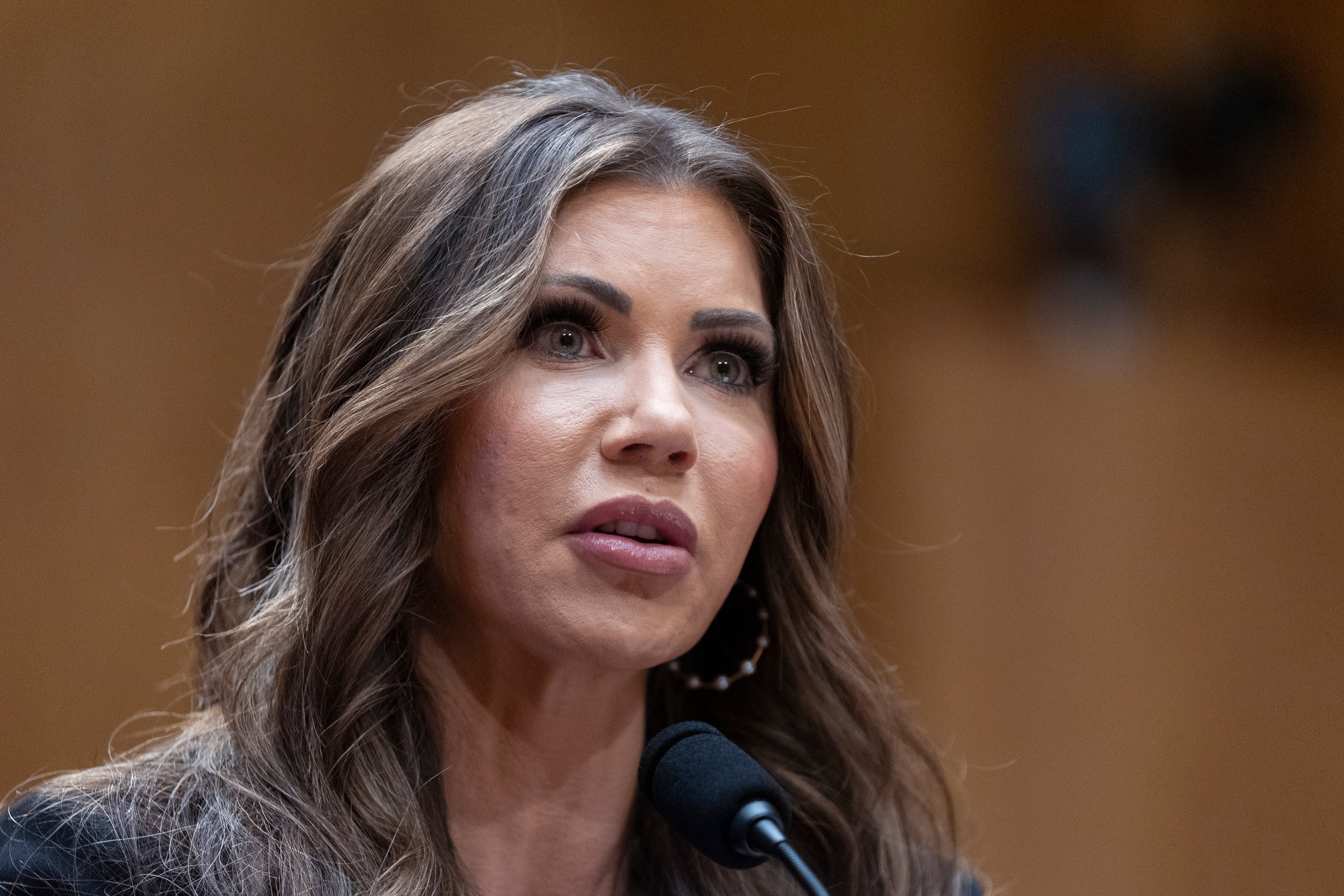ARTICLE AD BOX
Kristi Noem has ramped up the use of polygraph tests to determine whether DHS staff have been lying about leaking unflattering stories to the media, according to a report.
The practice was first reported in March when Noem and President Donald Trump’s border czar Tom Homan blamed the low number of Immigration and Customs Enforcement arrests on internal leaks tipping off agents’ targets.
According to The Wall Street Journal, employees under suspicion at the DHS’s Virginia headquarters have been ordered to sit in a seat designed to record uncomfortable body movements and wear a blood pressure cuff, an oxygen monitor, and a tube around their chests. At the same time, their superiors look on through a one-way mirror and observe their responses to questioning.

The interviews are reportedly being carried out by an obscure office within the Transportation Security Administration, which is typically concerned with screening passengers and baggage at airports.
Those believed to have taken the test so far include employees at immigration agencies, including leadership, and FEMA, an agency which the Trump administration has moved to dismantle.
Cameron Hamilton, FEMA’s former acting director, is one person known to have been ordered to sit for a test after he was suspected of leaking details about a meeting he had attended with Noem and her top adviser Corey Lewandowski concerning his agency’s uncertain future.
Press office employees have also been asked to take the exams in cases where they have been suspected of overstepping the mark when briefing journalists. However, the newspaper's sources said none of the leaked stories featured classified information.
The interview sessions are said to last anywhere between 90 minutes and four hours and have resulted in some people being placed on administrative leave and others preferring to resign rather than comply.
While administering polygraph tests is not unprecedented at the DHS, it has primarily taken place as part of security clearance surveys, job applications, and investigations in the past.
The Journal reports that it has only been deployed under Noem to attempt to root out discontent.

“There’s no precedent for this,” said Juliette Kayyem, a former assistant secretary at the DHS during the Barack Obama administration.
The current situation has reportedly “created a chilling effect inside the department,” with the “seeming randomness” of the selection process causing unease among some workers. Others dismiss the whole approach as a non-strategic “fishing expedition” hoping to get lucky.
But Assistant Secretary Tricia McLaughlin defended the practice, commenting: “Under Secretary Noem’s leadership, DHS is unapologetic about its efforts to root out leakers that undermine national security.
“We are agnostic about your standing, tenure, political appointment, or status as a career civil servant – we will track down leakers and prosecute them to the fullest extent of the law.”
“None of this is about disloyalty. Information doesn’t have to be classified to be confidential or not for public consumption,” McLoughling added.
The Independent has contacted the DHS for more information about the policy and the rationale behind it.

Noem was previously asked about polygraphing her own employees on CBS’s Face the Nation in March and said: “The authorities that I have under the Department of Homeland Security are broad and extensive, and I plan to use every single one of them to make sure that we’re following the law, that we are following the procedures in place to keep people safe, and that we’re making sure we’re following through on what President Trump has promised.”
She is not the only Trump administration secretary or agency head to have begun employing the technique, however.
Senior ICE official Madison Sheahan “routinely threatens to subject employees to polygraphs in meetings,” according to the Journal. At the same time, both the Department of Justice and the Department of Defense have been linked to the practice.









 English (US) ·
English (US) ·